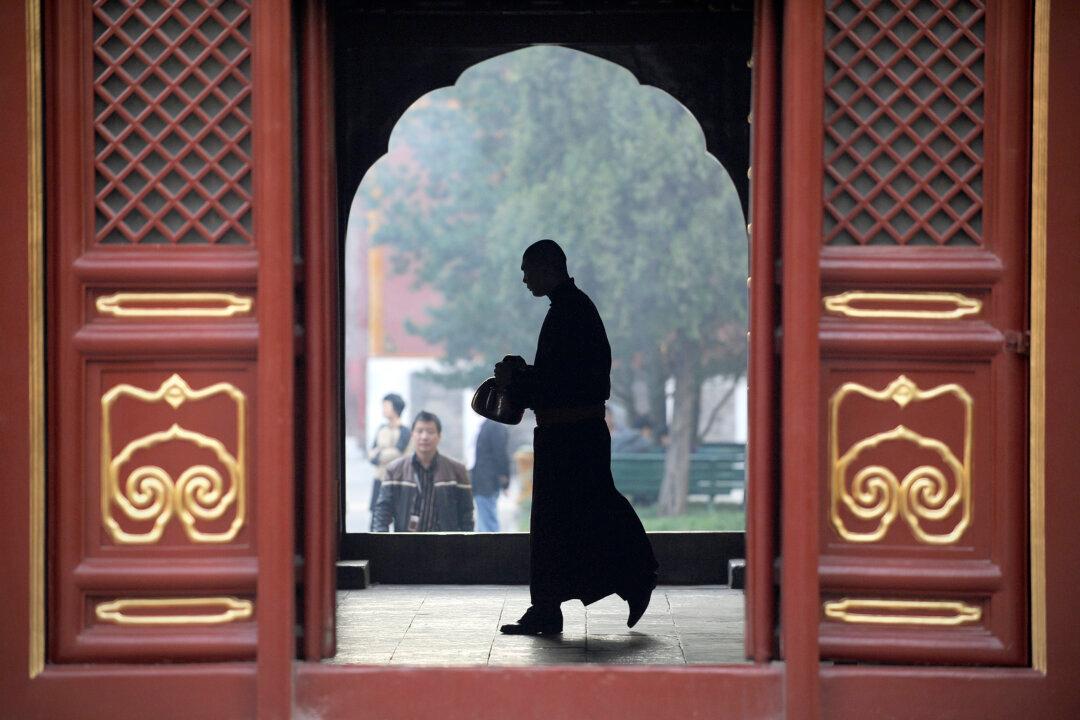Not content with the Communist Party’s Marxist atheism, many officials in the Chinese regime seek out the friendship and services of Buddhist monks and Daoist mystics to help them through their tumultuous careers. The officials are in it for advice, good fortune, and even clemency for misdeeds.
While monks and Daoist cultivators of antiquity may have kept away from the chaos of the secular world, their modern counterparts, branded by official Communist ideology as “superstitious,” have turned the position into a profitable line of work.
According to the Hong Kong-based Phoenix magazine, Yang Weize, the ousted municipal Communist Party secretary in eastern China’s city of Nanjing, maintained a close relationship with Buddhist abbot Shi Chuanzhen. Following Yang’s downfall at the hands of the regime’s disciplinary agency, Phoenix released a number of photos showing the party boss and Buddhist monk together.
Shi told the Southern Weekly, a Chinese newspaper, that officials would come to him for consultation about their troubled careers or lives, or seek advice for the auspicious scheduling of events such as weddings.




